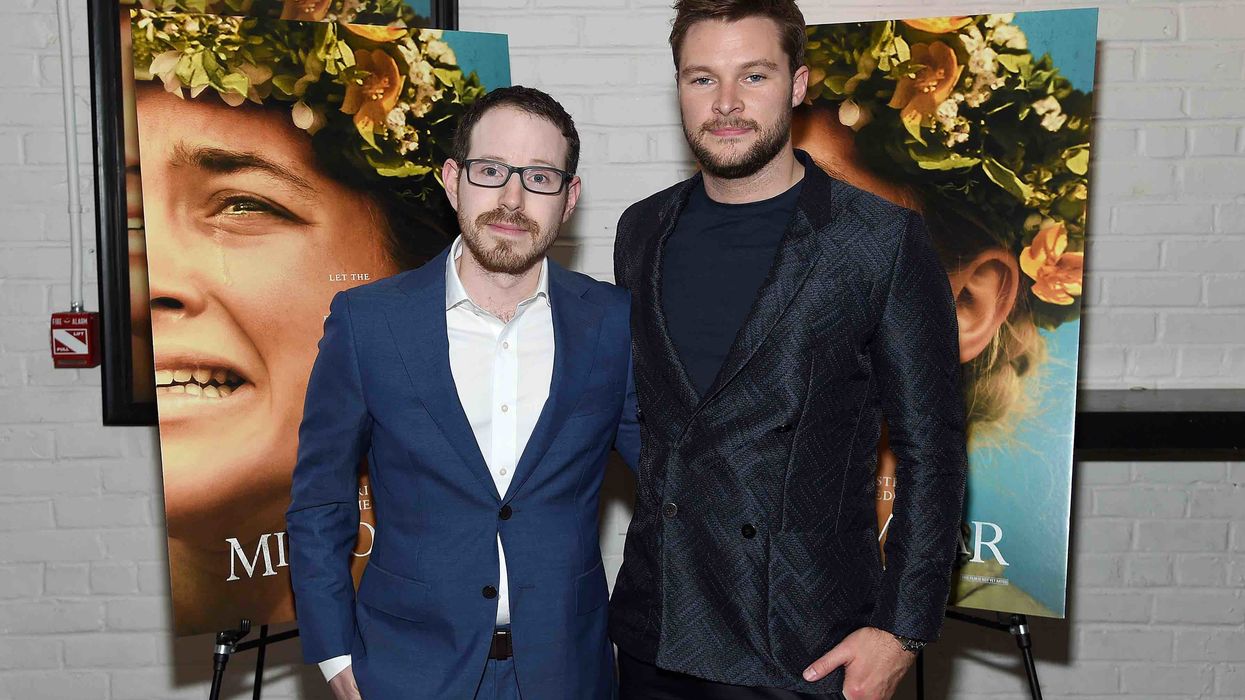
"Midsommar" director Ari Aster and star Jack Reynor, who plays Christian in the film, attend a New York Screening of "Midsommar" at Metrograph in New York City. (Photo by Jamie McCarthy/Getty Images)

Powerful message for Western Civilization
Warning: Spoilers abound in the following column if you haven't seen the movie "Midsommar" yet.
I have no idea about the worldview of filmmaker Ari Aster, but if I didn't know any better, I'd think his new movie "Midsommar" is a plea for Christianity to step up and save the Western Civilization it once inspired before it's too late.
Aster was last year's breakout director for his horror hit "Hereditary," which I think is the best film in the genre since 2013's "The Conjuring." A study in creepy, "Hereditary" uses clever sound and visual editing to keep its audience on edge. And then its plot contains numerous disturbing twists that lets you know Aster understands the nature and origins of true evil. Heck, the demonic presence that reveals itself in that film's climactic scene even outright says it's here to “oppose the trinity."
Following up your breakout hit is never easy, but while "Midsommar" doesn't surpass "Hereditary," it's a more than worthy successor. The film is rated R for good reason. This is not for the faint of heart, for it depicts the paganism today's leftist “progressives" seek to return us to with no filter. This movie is to paganism what "The Passion" was to the crucifixion. As in a gritty, realistic portrayal of the sacrifice the other side of the spiritual divide demands to be made.
The movie begins with its female lead, Dani, confronted with an unspeakable family tragedy. Now, alone in the world, she reaches out to her boyfriend named Christian for support. However, while he's more sympathetic to her suffering than his worldly and educated university friends, in the end he's just paying lip service to being there for her in her time of need. He's more attracted to the lifestyle his peers are enjoying than being a life mate for her.
Can you see the symbolism there? The guy named Christian really isn't committed to her, or commitment in general, but is really just playing the nice guy while he's after the same thing most other guys are after? Heck, they even date for three-and-a half years without a marriage proposal. Roughly the same amount of time as Christ's earthly ministry in the Gospels.
The couple join their friends for a “spiritual getaway" to one of their pals' remote Swedish compound he calls a home. Where they meet every 90 years to gather around the maypole and dance until the wicker man burns. Of course, these highly educated secular Ph.D. students are mostly ignorant of what's happening here. After all, they're edumucated, don't you know? Just too dang sophisticated for this ancient religion stuff. Especially when the allure of free hallucinogens and guilt-less sex are dangled in front of them in the name of freedom, of course.
The pagans never really hide their intentions, for everywhere the students go in the compound they are brazenly confronted with the drawings and relics of what's going down here, but they're the blind leading the blind. These students' characters even have Biblical names like Mark, Simon, and Joshua, but they will all perish for a lack of knowledge. Their womyn's studies in patriarchal anthropology are no match for the forces of darkness they're up against.
There's another metaphor there, for those with ears to hear.
Finally, the film speaks to several of the silliest and most tragic contemporary cultural maladies currently plaguing us:
In the end, Christian never stops letting who's supposed to be his true love down. Even succumbing to the pagan tribe's mating ritual with a village girl. So with Christian offering her no hope, Dani turns to the only place left for her to go — nihilism.
The film ends with Dani, decked out as the may queen, laughing while everything burns.
No hope. No redemption. No salvation. No mercy. No grace. No light. It's not that Christian proved to be no match for this confrontation, it's that he didn't even try.
He simply couldn't be bothered. His relationship with Dani was an obligation, not a mission let alone a relationship. If that's not a metaphor for the state of the church as we watch the death of the West, I don't know what is.
There is no Gospel in "Midsommar," and that's exactly why it's a powerful sermon.
Steve Deace
BlazeTV Host